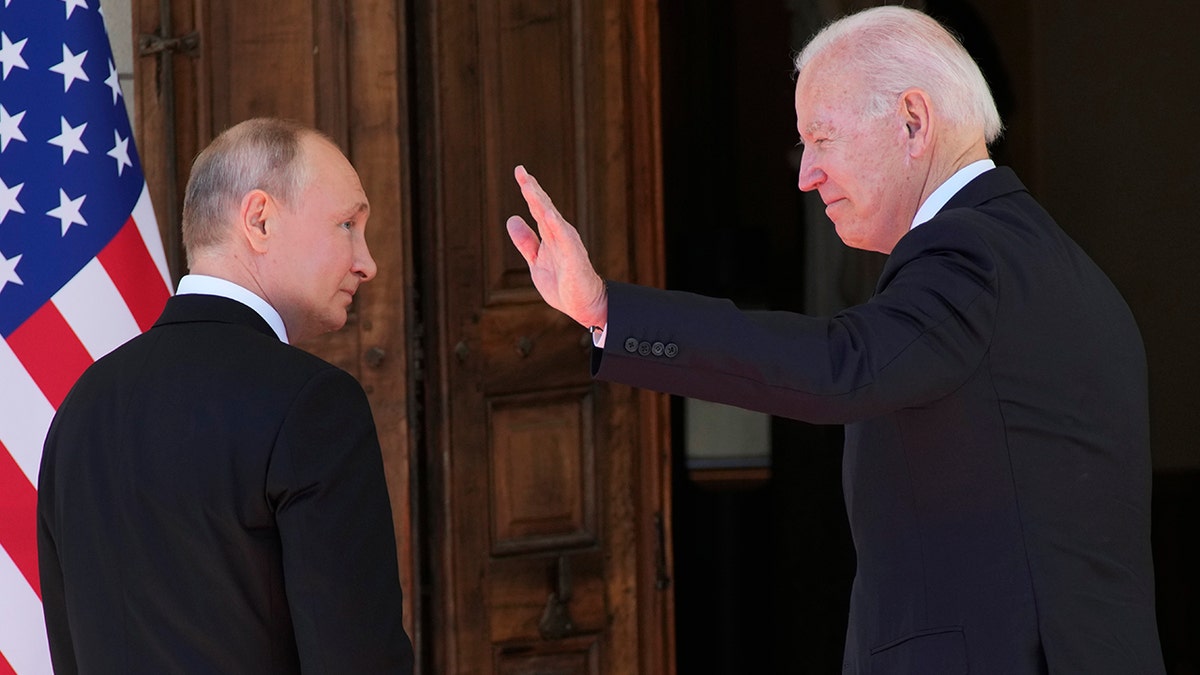Biden discusses Russia hacks and infrastructure with Putin
Fox News' Peter Doocy has the latest on the Biden-Putin summit on 'Special Report'
President Biden and Russian President Vladimir Putin sat down in Geneva for a widely anticipated summit, where despite the deeply strained U.S.-Russia relationship, both leaders claimed to have a "positive" dialogue.
As for declaring winners and losers of the summit, experts say Putin was happy to bask in the limelight of the world stage, where he could peddle his own propaganda, and Biden got what he came for, which was an opening of dialogue between the two leaders.
"There is no substitute for face-to-face dialogue between leaders. None," Biden said, explaining his reasoning for meeting with the corrupt Russian leader.
Washington and Moscow will return ambassadors to their posts and form working groups to discuss nuclear arms control and cybersecurity. And Biden promised consequences if Kremlin critic Alexei Navalny dies in jail, gave Putin 16 "off-limits" infrastructure entities to avoid for cyber attacks and pressed the Russian leader on human rights abuses. Putin, for his part, denied and deflected when confronted with alleged abuses.
The White House said the goal of the summit was to continue work toward a "stable" and "predictable" relationship with Russia.

U.S President Joe Biden, right, and Russian President Vladimir Putin enter the "Villa la Grange" during their meeting in Geneva, Switzerland in Geneva, Switzerland, Wednesday, June 16, 2021. (AP Photo/Alexander Zemlianichenko, Pool) (AP Photo/Alexander Zemlianichenko, Pool)
But some experts think Biden may have played his cards too early, leaving him in a weakened negotiating position before the summit began.
As for who benefited more, retired Gen. Jack Keane, former vice chief of staff for the U.S. Army, told Fox News: "I think they both got out of it what they wanted. Putin, I think, got more out of it than he expected given the major concessions that were made prior to the summit, and that he was able to deny and deflect the major issues."
"There’s not much evidence for President Biden’s objective to improve the relationship so that it’s more stable and predictable. It’ll take some time to see if that has been achieved, I think the early signs are that it has not," said Keane, a Fox News senior strategic analyst.
BIDEN CALLS TONE OF PUTIN MEETING ‘POSITIVE’ SAYS HE MADE ‘NO THREATS'
Keane said he believes the conference was held too early in Biden’s presidency.
"It should have been done this year, or even better, next year. That would enable the staff to tee up the major issues of contention that we have as well as those issues that we may have some commonality and agreement on," he said.
Rebekah Koffler, former Defense Intelligence Agency covering Russia and author of the forthcoming "Putin's Playbook: Russia's Secret Plan to Defeat America," told Fox News that Biden extending the Start II treaty and eliminating Nord Stream 2 sanctions before the summit left him without anything to negotiate on.
"I think our president is in the losing position and Putin is in the winning position, and that was even before the summit," she said.
Biden, Koffler said, "pretty much has given out the store to the Russians. He had no negotiating leverage."
Koffler agreed Biden needed to meet with Putin at some time, but said as of now Putin has "established dominance" through his alleged involvement in a recent spate of cybersecurity attacks and other forms of "diplomatic intimidation."
Both experts agreed that the U.S. should have hit back harder with its own counterattack capabilities after the SolarWinds attack, among others.
For Putin, being the first adversary to sit down with the U.S. president in international territory gave him the opportunity to elevate his stature amid waning support back home.
"Putin got what we wanted, which was a big summit before his parliamentary elections," Daniel Hoffman, former CIA Moscow station chief and Fox News contributor, said in an interview.
Keane agreed. "At home his population is waning, his economy is in the tank, his COVID-19 response has been awful – he’s only got about 11% of country vaccinated – and they are very upset with him."
CLICK HERE TO GET THE FOX NEWS APP
Hoffman said though the summit elevated Putin’s stature, it was necessary for the U.S. president to meet with him.
"Where Biden missed an opportunity was, go stand next to him at the press conference," Hoffman said.
"To me that was playing not to lose rather than playing to win. Go out there and argue the points … tell him, ‘No, you’re throwing out false equivalencies, this isn’t true, and by the way, here’s all the things you’ve done.’"














































